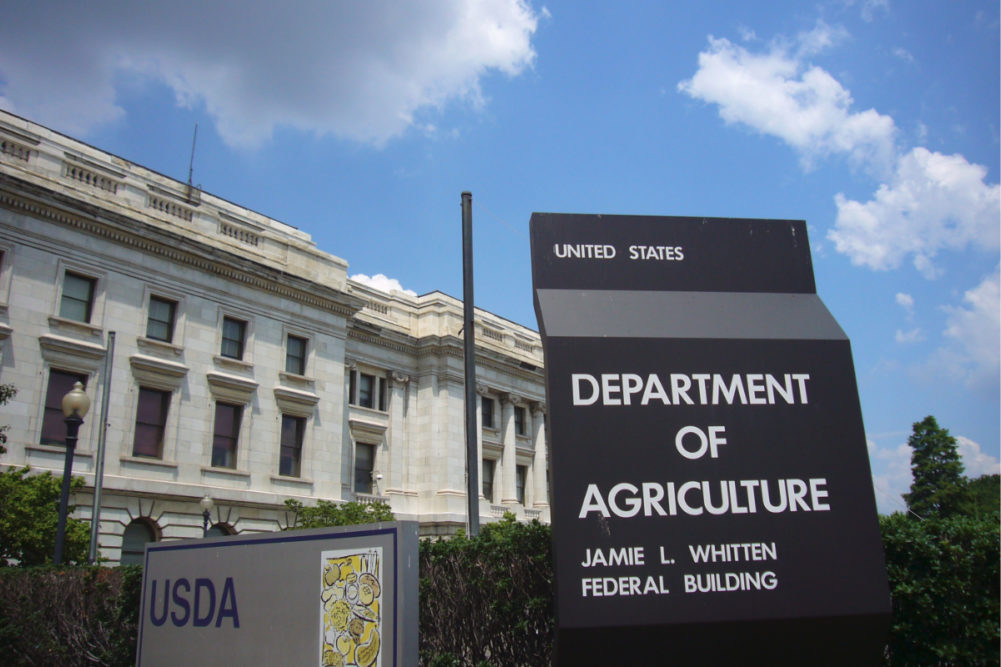
- Details
- By Chez Oxendine
- Food | Agriculture
As discussions on the 2023 Farm Bill intensify, a provision in the legislation’s previous incarnation is finally coming to pass in the form of a Tribal Advisory Committee under the U.S. Department of Agriculture.
The USDA posted a notice in the Federal Register seeking nominations for the committee, which will advise Secretary of Agriculture Tom Vilsack on Native affairs. The committee would join the Office of Tribal Relations (OTR) in ensuring Native voices are heard at USDA, per the department’s statement.
OTR Policy Advisor on Economic Development and Food Systems Josiah Griffin (Native Hawaiian and Samoan), who also serves as the designated federal officer for the new committee, said the arrangement married USDA’s internal resources — such as OTR — with external recommendations and advice from across Indian Country’s agriculture industry.
“We’re going to work with a new body that represents a diversity of interests across geographies, tribes, and the agricultural industry to ensure we have an ongoing platform to hear from tribal representatives on what their needs are, what barriers exist when accessing USDA programs,” Griffin told Tribal Business News. “We want to hear how we can reshape and rethink how we do business in a way that better honors our trust and treaty obligations to tribes.”
Secretary Vilsack echoed the sentiment in a USDA statement.
“Establishing the Tribal Advisory Committee is an important step towards ensuring tribal perspectives are well represented at USDA and positioned to inform how the Department meets its trust responsibility to tribes across the nation,” Vilsack said in the statement. “I encourage applicants from across the country to apply and look forward to working with my counterparts on the Hill to appoint members who represent the diversity of voices across Indian Country.”
Toni Stanger-McLaughlin, CEO of the Native American Agriculture Fund, wrote in a public statement that the Tribal Advisory Committee “mirrors” an existing segment of the Office of Tribal Relations called the Council for Native American Farming and Ranching (CNAFR) “providing insightful counsel and constructive recommendations to the Secretary.”
What distinguishes the TAC and CNAFR from the Treasury’s committee is inter-agency collaboration with the Bureau of Indian Affairs (BIA), according to a statement from the Native Farm Bill Coalition, which advocated for the TAC in the 2018 Farm Bill.
“The department’s work often overlaps, and the ability for Native Nations and Tribal producers to access some USDA programs requires BIA participation. This collaboration provides an opportunity to remove barriers to accessing programs while also increasing both agencies’ efficiency and overall service,” the coalition wrote.
The Tribal Advisory Committee will be required to meet at least twice a year, but should expect to meet quarterly, per the USDA. The final committee lineup should reflect a diversity of tribes, regions, and a range of agricultural expertise, including sustainable growth, subsistence, and cultural practices. The department asks for nominations from federally recognized tribes, Alaska Native Corporations, tribal organizations connected to larger tribal governments, and/or national or regional organizations with expertise in tribal food and agriculture issues.
The 11 appointments will be made by ranking members of the Senate Committee on Indian Affairs, the Senate Committee on Agriculture, Nutrition, and Forestry, and the House Committee on Agriculture, as well as the Secretary of Agriculture. Appointments will last three years, save for Vilsack’s first appointee, who will serve two years on the board.
The USDA announcement stressed that the Tribal Advisory Committee would not replace its renewed commitment to tribal consultations and direct communications with tribal governments across the country. Instead, according to the Federal Register entry, the committee will be expected to provide strategies and advice on how to improve those consultations.
"While USDA will continue to consult with tribes on a regular basis, this Tribal Advisory Committee is an important partner in the Office of Tribal Relations mission of advising the Secretary on tribal issues,” Acting Director of Tribal Relations Deb DuMontier said.
Griffin said both communications between the Tribal Advisory Committee and the Office of Tribal Relations, as well as the committee’s annual report to Congress, would help prepare USDA for their tribal consultation sessions. Being better informed ahead of time will help create more productive conversations, he said.
“Our goal with these conversations is not only to consult with tribal governments, but to coordinate with tribal communities on our programs and policies,” Griffin said. “This new committee will help us coordinate in a more meaningful way.”
The process for nomination submissions and appropriate contacts can be found at the Federal Register entry here. Nominations must be submitted by Aug. 14 of this year.
